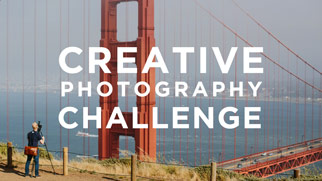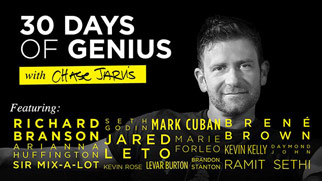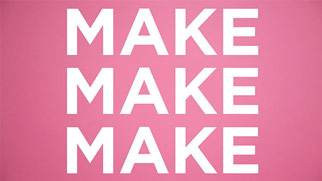Simone Stolzoff is an independent journalist and designer from San Francisco. He has worn many professional hats over the years, and now uses his insight to advise leaders—from the Surgeon General of the United States to the Chief Talent Officer at Google—on human-centric workplace culture. Simone’s new book, ‘The Good Enough Job‘, was just released. He sits down with me for this episode to discuss it and the topic of workaholism at large.
The Religion of Work
Statistics show that roughly three out of four Americans identify with a religious faith – Christianity, Catholicism, Judaism, and Islam being the most popular. Yet in many cases, people dedicate the majority of their time not to the church or synagogue, but to the office. Work has become an unofficial religion on its own, with many people investing more energy in their professional lives than they do in their spiritual ones. And faith isn’t the only thing affected; family, friends, hobbies… remember those? They’re all considered part of the healthy and balanced life that so few people have today.
In some cases, working culture is so powerful that it becomes an identity-shaping factor. The hustler mentality has a way of motivating us to be the best we can be, but as a state of mind, can also feel like an identity. It becomes easy to attach our self-worth and happiness to however we perform at our job or pursue our career.
The non-stop hustle of entrepreneurship is necessary to an extent, yes. After all, if it weren’t for ruthless drive, many of the world’s most transformative ideas and people wouldn’t be where they are today. But at the same time, it isn’t sustainable. Creative project success is not solely determined by ambition, but also the state of mind of the person behind it.
View this post on Instagram
Embracing Seasonality
Becoming entrenched into your work to the point that it becomes your life is a recipe for disaster. It takes a toll on your mental health during the day-to-day hustle, contributing to unnecessary stress and burnout. It also sets the stage for a major identity crisis down the line.
I experienced this firsthand when developing my company CreativeLive. As a project of pure passion, I dedicated my full and undivided attention to it for years. That ultimately paid off, with the platform taking off and becoming a go-to resource for countless photographers, designers, and entrepreneurs around the world. But a lack of personal balance on my part quickly showed. In October 2021, Fiverr acquired CreativeLive, marking a major milestone in its success. I stepped back a year later with the intention of moving on to new projects, only to face a reality that I had been ignoring for so long – I was tired. Dead tired. Putting your all into a professional endeavor for years makes it easy to forget who you are or what you actually like to do outside of work. For the first time in my life, I understood the true definition of burnout. I also felt incredibly disconnected.
All things in life come to an end. When whatever project you’re working on inevitably does, your sense of purpose shouldn’t go with it. Although I was eventually able to pick myself back up and move forward, I often wish I had nurtured the personal side of myself during those years of hustle – it would have made things a lot easier.
The Reality of Work In America
We as a society have built a culture that promotes non-stop work and equates professional success to personal value. Most would say they consider themselves part of ‘the rat race’ – or better put, lifestyle of brainlessly running the same pre-defined course as everyone else. Just go to work, come home and maybe watch Netflix for an hour to decompress, then sleep, rinse, and repeat. Until retirement.
It’s no one’s fault in particular either, rather a symptom of America’s dysfunctional system. Our country was founded upon the principles of hard work and is proudly capitalist. Billionaires like Elon Musk and Bill Gates are looked up to as inspirations of what we can be if we work hard enough. Even health care is tied to work. For most people, taking a break doesn’t feel like an option.
This environment has a major impact on the wellbeing of working-age adults across the nation. And it’s only getting more severe. Simone references a study showing how we fare with the rest of the world; in the 1970s, the average American, German and French worker each worked roughly the same amount of hours every year. Today, the average American works 30% more than the average German. We now face a converging storm of crises – a loneliness epidemic, a mental health crisis, an increase in work-related burnout and stress – that all have been linked to our culture of overworking.
The Future of Work: Creating Healthier and More Sustainable Approaches
Simone’s book doesn’t just outline the reality of today’s work-identity crisis – it also outlines tangible solutions that we can all make to overcome it. Investing in yourself can be just as valuable to your ambitions as traditional work is. For those with highly-demanding professions, it’s an essential part of maintaining wellbeing.
“People ought to recognize that our identities, our sources of meaning, they’re sort of like plants. They require time and energy to grow. And one of the risks of living such a work-centric existence is that when you’re off work,… Share on X“People ought to recognize that our identities, our sources of meaning, they’re sort of like plants. They require time and energy to grow. And one of the risks of living such a work-centric existence is that when you’re off work, you often don’t have the energy to do anything else” Simone says. He argues that the world’s most successful people aren’t where they are because they have a full calendar, but because they make a point of keeping their calendars empty. This ensures spare time to think, enrich, and grow one’s own mindset, spilling over into all areas of life and making it easier to find success.
Even little breaks can make a huge difference in structuring a more balanced work-identity. You don’t have to change your whole life overnight – start small and commit to something like a few hours of yoga each week, or a regular art class.
You can also pick up a new book, like ‘The Good Enough Job’, which is filled with insights from Simone’s own life and the lives of successful people around the world. It just hit shelves this week and is a must-read for anyone looking to break through the stresses and strains of modern life.
Enjoy!
FOLLOW SIMONE:
twitter | instagram | website

























